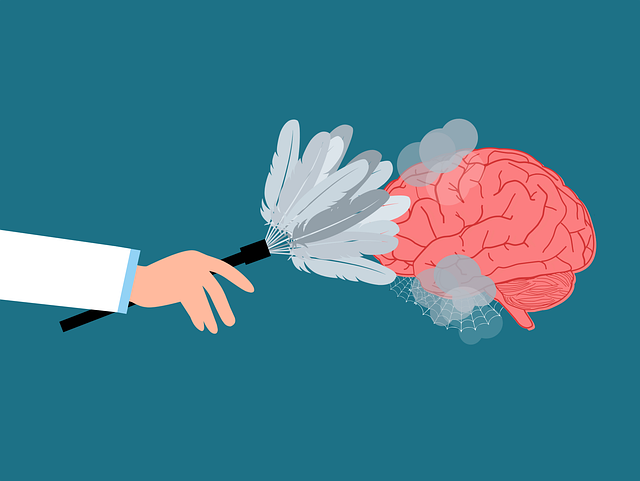Northglenn Mandarin Chinese Speaking Therapy employs comprehensive risk assessment and harm minimization strategies centered on client safety and well-being. This involves identifying cultural nuances, language barriers, vulnerabilities, triggers, and dynamic factors through non-verbal cues and Mandarin subtleties. Tailored interventions like Social Skills Training and Mind Over Matter stress reduction methods empower clients from diverse backgrounds. The therapy prioritizes proactive environment security, regular profile reviews, and adaptation to evolving community needs, integrating Trauma Support Services and stigma reduction efforts for holistic care. Continuous strategy evaluation based on feedback, best practices, and public insights ensures dynamic risk management for positive mental health outcomes.
In the field of therapy, risk assessment and harm minimization are paramount, especially in diverse settings like Northglenn Mandarin Chinese speaking therapy sessions. This article delves into a comprehensive guide for therapists, offering a structured approach to understanding, identifying, and mitigating risks effectively. From establishing a robust foundation through risk assessment to crafting tailored plans, we explore strategies for continuous evaluation and improvement, ensuring client safety and well-being in every session of Northglenn Mandarin Chinese speaking therapy.
- Understanding Risk Assessment: A Foundation for Safe Therapy Practices
- Identifying Potential Harms in Northglenn Mandarin Chinese Speaking Therapy Sessions
- Developing a Comprehensive Harm Minimization Plan
- Implementing Strategies for Effective Risk Management
- Continuous Evaluation and Improvement: Ensuring Client Safety and Well-being
Understanding Risk Assessment: A Foundation for Safe Therapy Practices

Risk assessment is a cornerstone for any therapy practice, ensuring the safety and well-being of clients, especially within the context of Northglenn Mandarin Chinese Speaking Therapy. It involves a systematic analysis of potential hazards and risks associated with various therapeutic activities and environments. By identifying these risks, therapists can implement targeted strategies to minimize harm and foster a secure space for healing. This process is crucial in mitigating unexpected events and promoting positive outcomes for clients from diverse cultural backgrounds.
Through comprehensive risk assessment, therapists gain insights into client vulnerabilities, potential triggers, and the dynamics of specific therapeutic situations. Consequently, they can tailor interventions, such as Social Skills Training and Conflict Resolution Techniques, to address unique challenges. Moreover, by considering Emotional Healing Processes, therapists can create a supportive environment that encourages clients to explore their emotions safely and effectively.
Identifying Potential Harms in Northglenn Mandarin Chinese Speaking Therapy Sessions

In Northglenn Mandarin Chinese Speaking Therapy sessions, identifying potential harms is a critical step in risk assessment and harm minimization planning. This process involves considering various aspects unique to this language therapy context. For instance, cultural differences can influence communication and emotional expression, necessitating therapists to be sensitive to non-verbal cues and nuances of the Mandarin language. Additionally, since Northglenn hosts a diverse community, therapists must be prepared to address potential language barriers, ensuring all clients feel heard and understood.
The design of mental health education programs tailored for this demographic can play a significant role in risk mitigation. By incorporating Mind Over Matter principles, therapists can educate clients on stress reduction methods, empowering them to manage anxiety or discomfort during therapy sessions. This proactive approach aligns with the broader goal of harm minimization, aiming to create a safe and supportive environment where participants can openly explore their mental health concerns in a Northglenn Mandarin Chinese-speaking setting.
Developing a Comprehensive Harm Minimization Plan

At Northglenn Mandarin Chinese Speaking Therapy, we understand that effective risk assessment and harm minimization planning are paramount to ensuring a safe and supportive environment for all clients. A comprehensive harm minimization plan involves a multi-faceted approach, tailored to address the unique needs and challenges of each individual. Our therapists employ Mind Over Matter principles to foster emotional well-being promotion techniques, creating a space where clients can freely express their feelings and work towards anxiety relief.
This meticulous process includes identifying potential risks, evaluating their likelihood and impact, and implementing strategic interventions. By integrating evidence-based Emotional Well-being Promotion Techniques, we proactively mitigate risks and promote positive outcomes. The plan is dynamic, allowing for continuous evaluation and adjustment as clients progress on their journeys towards improved mental health and reduced anxiety, all within a culturally sensitive environment that resonates with our Mandarin Chinese speaking community.
Implementing Strategies for Effective Risk Management

Implementing effective risk management strategies is a cornerstone of responsible mental health practice, especially at Northglenn Mandarin Chinese Speaking Therapy. Risk assessment is not merely about identifying potential hazards but understanding their likelihood and impact. By adopting a proactive approach, therapists can foster a safe therapeutic environment for all clients, including those with traumatic histories. This involves regular reviews of client profiles, past interventions, and an awareness of emerging risks within the community.
Incorporating risk management planning into routine practice ensures that therapists are equipped to provide tailored support. This includes not only addressing immediate concerns but also implementing strategies to prevent escalation or re-traumatization. By integrating Trauma Support Services and Mental Illness Stigma Reduction Efforts, Northglenn Mandarin Chinese Speaking Therapy can offer comprehensive care. Effective risk management is a dynamic process, requiring continuous evaluation and adaptation to the evolving needs of clients and the broader community.
Continuous Evaluation and Improvement: Ensuring Client Safety and Well-being

At Northglenn Mandarin Chinese Speaking Therapy, we understand that risk assessment and harm minimization planning are not static processes. They require continuous evaluation and improvement to ensure the safety and well-being of our clients. This dynamic approach involves regularly reviewing and updating our strategies based on new information, feedback from clients, and evolving best practices in the mental health field.
Through ongoing monitoring and adaptive planning, we integrate the insights gained from Public Awareness Campaigns Development, Mental Health Policy Analysis and Advocacy, and Mental Health Education Programs Design into our risk management framework. This holistic strategy enables us to anticipate potential risks more effectively, implement targeted interventions, and foster a supportive environment that promotes positive mental health outcomes for all individuals served, especially those who may face unique cultural or linguistic barriers.
Risk assessment and harm minimization planning are essential components of providing safe and effective Northglenn Mandarin Chinese speaking therapy. By understanding the foundational principles outlined in this article, therapists can create comprehensive strategies to identify and mitigate potential harms. Through continuous evaluation and improvement, these practices ensure client safety and well-being, fostering a positive and nurturing therapeutic environment for all participants.














